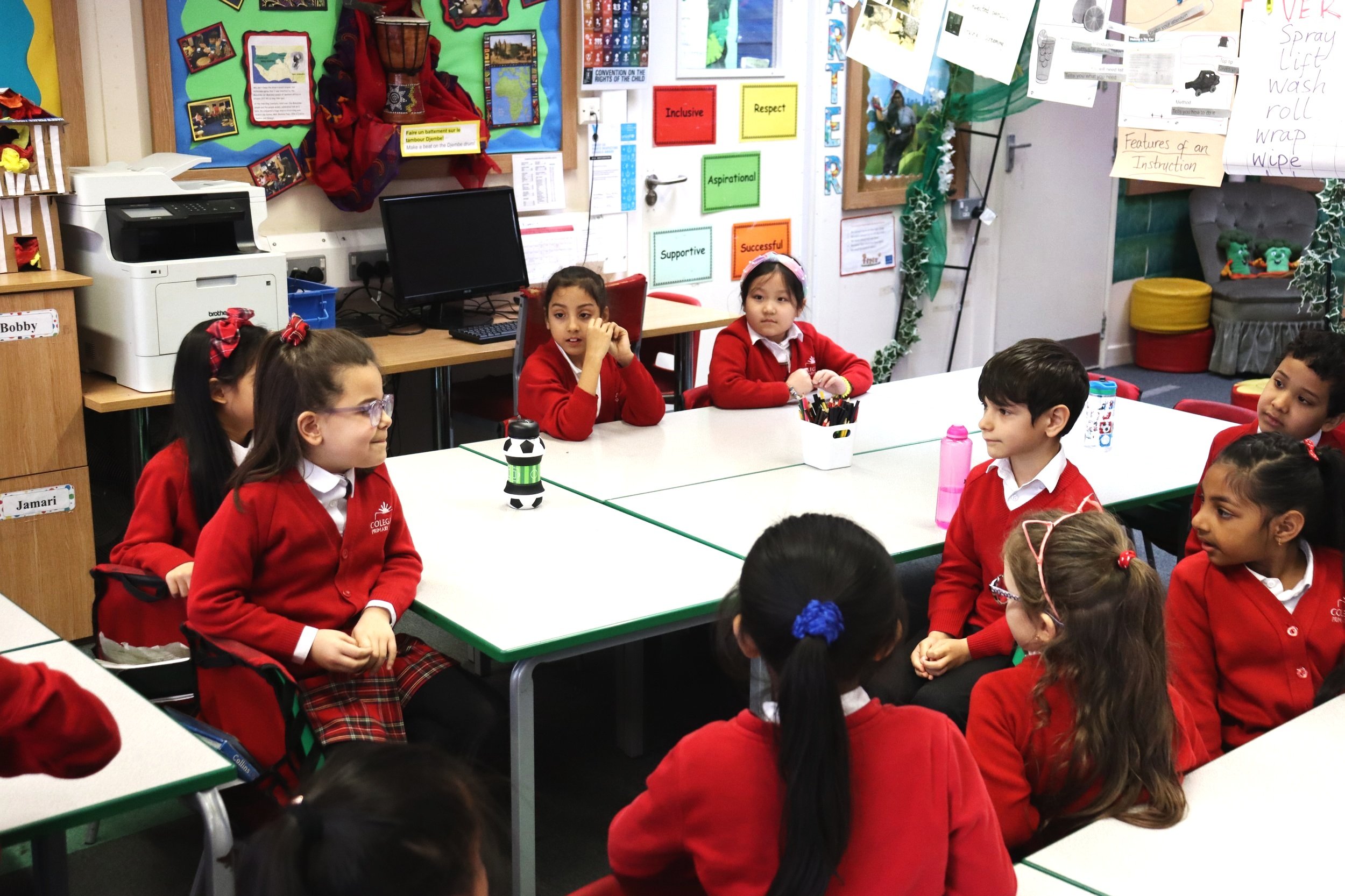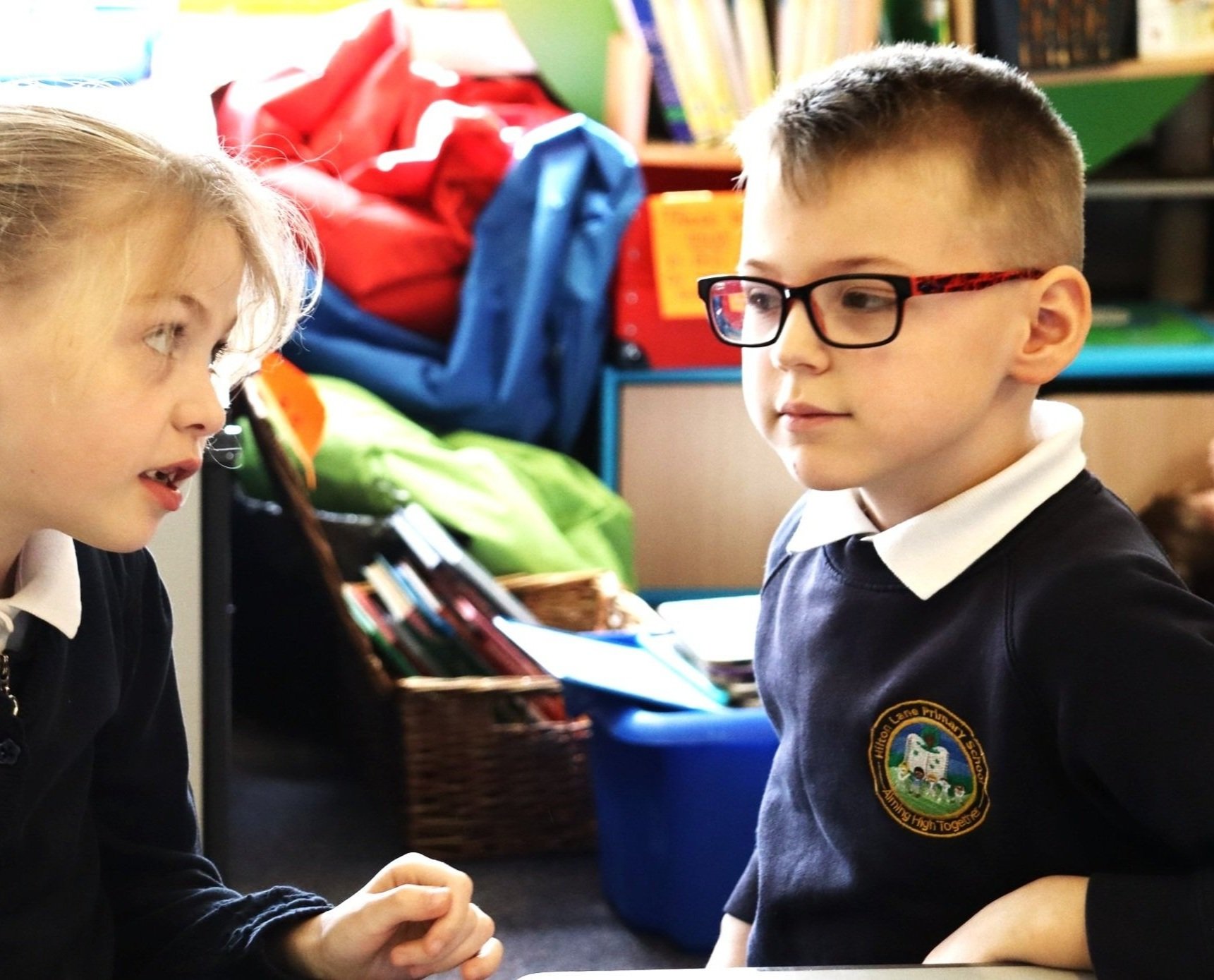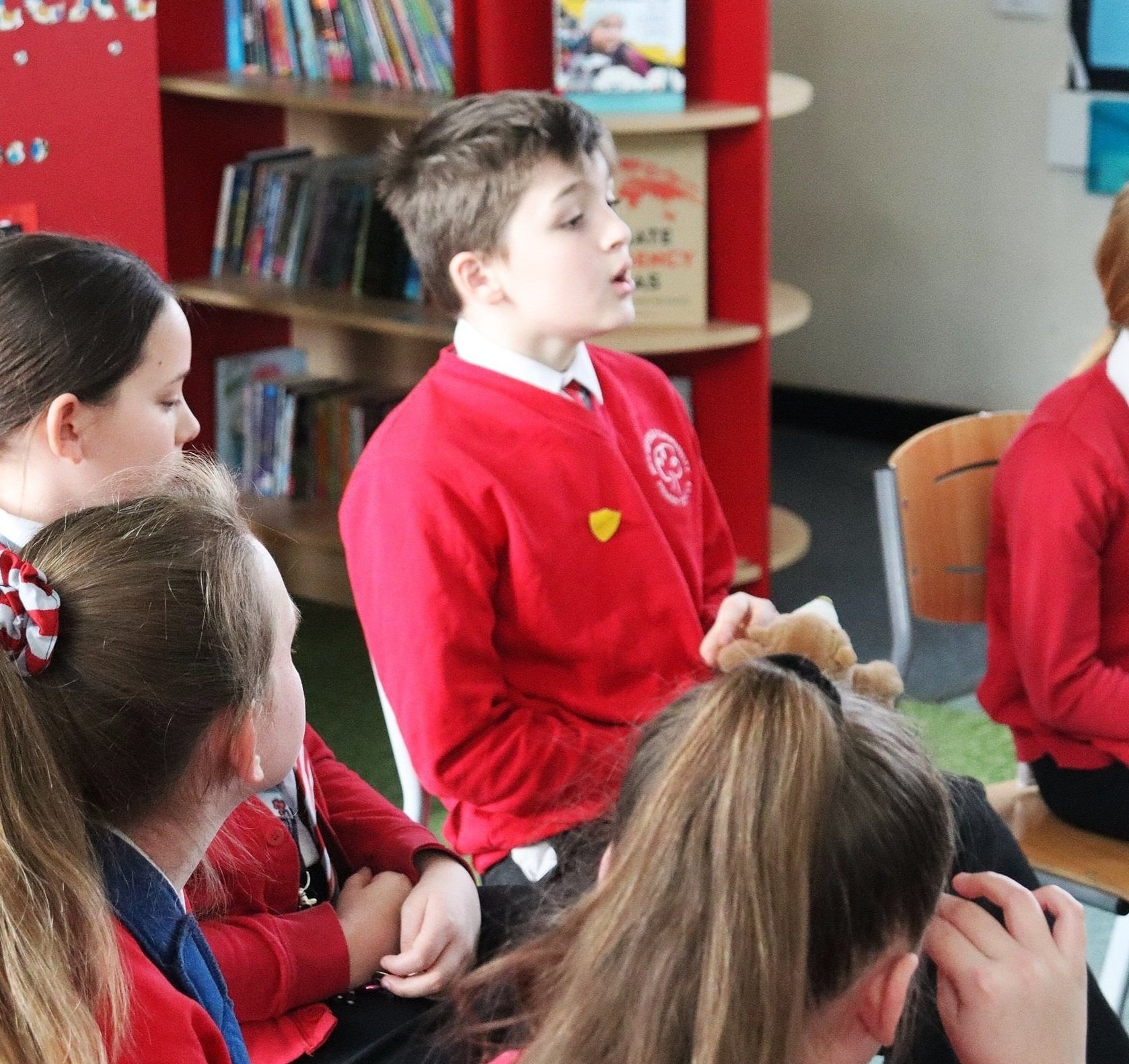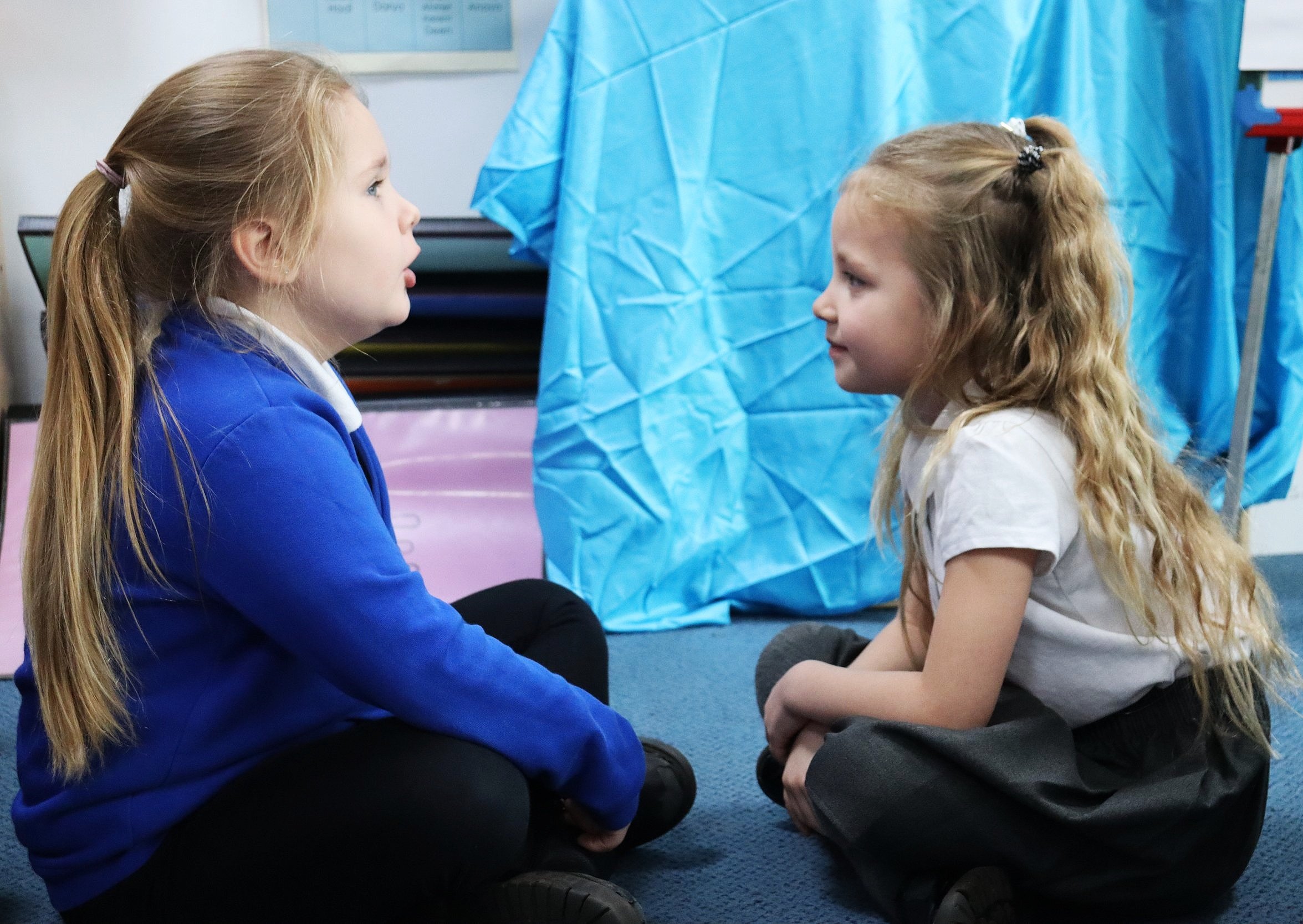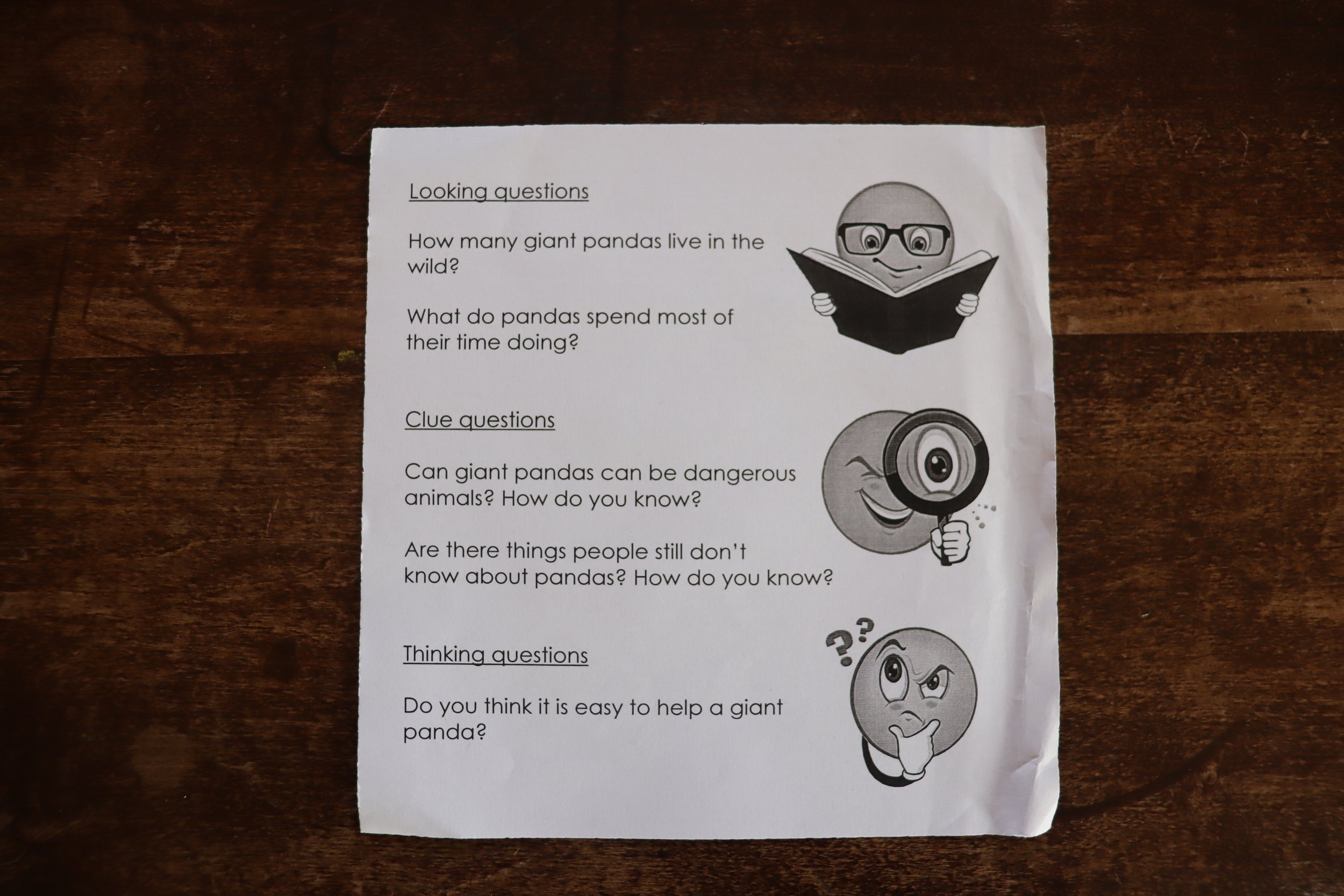I’m often asked whether we should try to get every child to talk, and how much to insist on this.
I believe every child should be able and willing to talk to their class. High expectations are paramount; so is sensitivity and support.
A simple tip for getting every child to talk is to play lots of low pressure, fun, silly talk games. Here’s one I recommended to a Year Two teacher who said that a quarter of her class don’t willingly offer to talk. This activity is suitable up to around Year Three (ages 7-8):
Favourite things

Ideally have children sitting in a circle. Simply ask them to each say in turn the name of their favourite animal – one word only.
Don’t worry about repetition – it’s fine if everyone says rabbit – as the only aim is to get every child to speak. To set them up for success, show images of animals, or place toy animals in the middle. You could even get them to talk in pairs first so they have an idea.
Able to contribute
This game is ridiculously simple, but if repeated regularly with different themes, it will make a big difference. The point is that once children can participate in something like this, they will feel more able to contribute in class dialogue.
Variations
These variations will help to keep the activity engaging:
Stand up
Shout out the words
Pass a ‘talking toy’
Time how long it takes the group to say all their animals, then challenge them to beat their time.
Let’s give our pupils plenty of opportunities to become confident talkers, not just accept that they’re ‘shy’.
What will happen when you remove the fear of being wrong?
Pupils feel that P4C helps them with everything from relationships to confidence to staying calm
Why giving out ‘talking objects’ is worth the hassle
Pupils tell us why they think their peers don’t raise their hands
Written from the perspective of a child with Selective Mutism, this book is well worth a read
Teachers’ reactions after starting Philosophy for Children with their classes
Three essential ingredients to ensure pupils have the confidence to speak in front of their peers
I’ve been working with a group of Manchester teachers to discover how to optimise P4C in the teaching and learning of English. It’s been lovely to hear from pupils and teachers about some really positive experiences.

